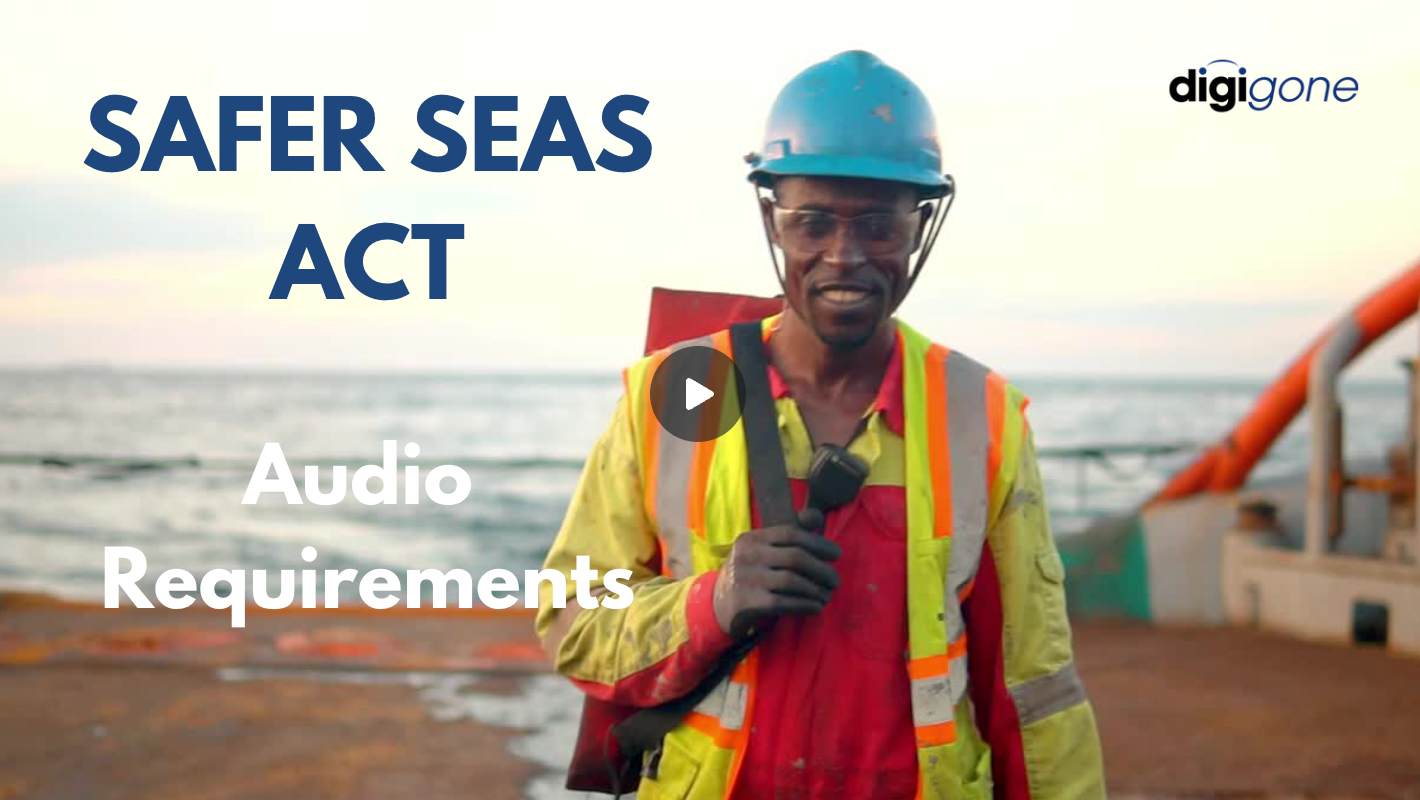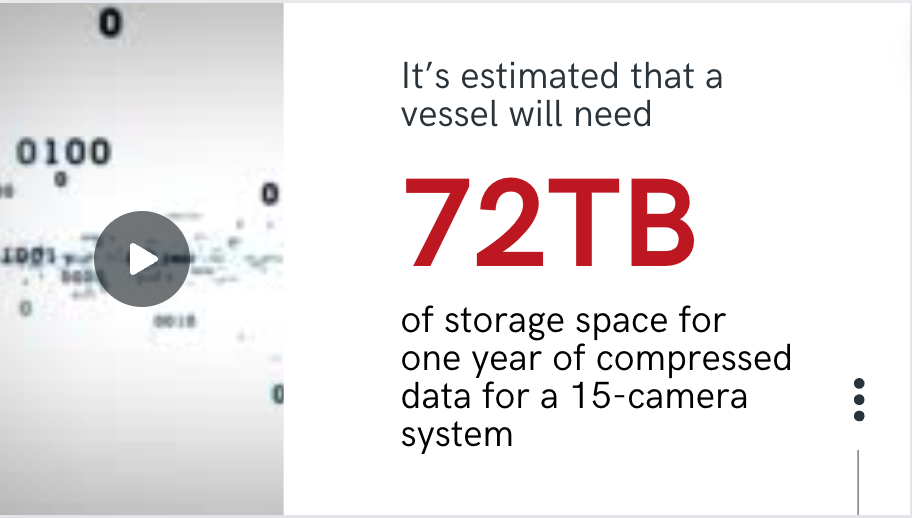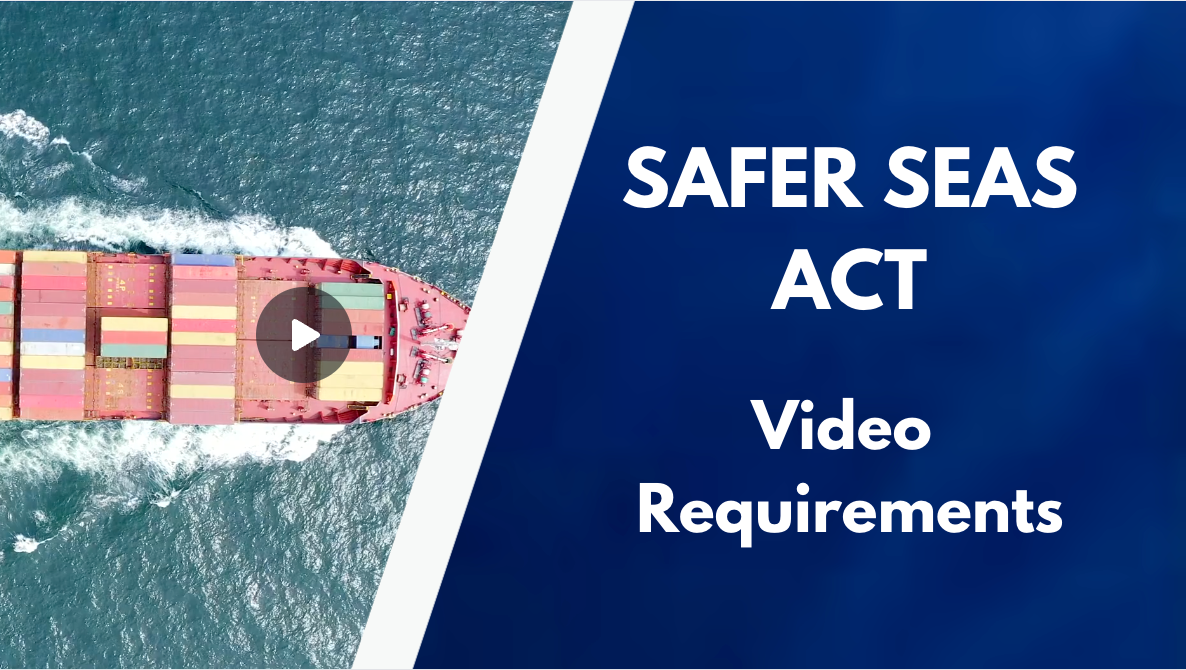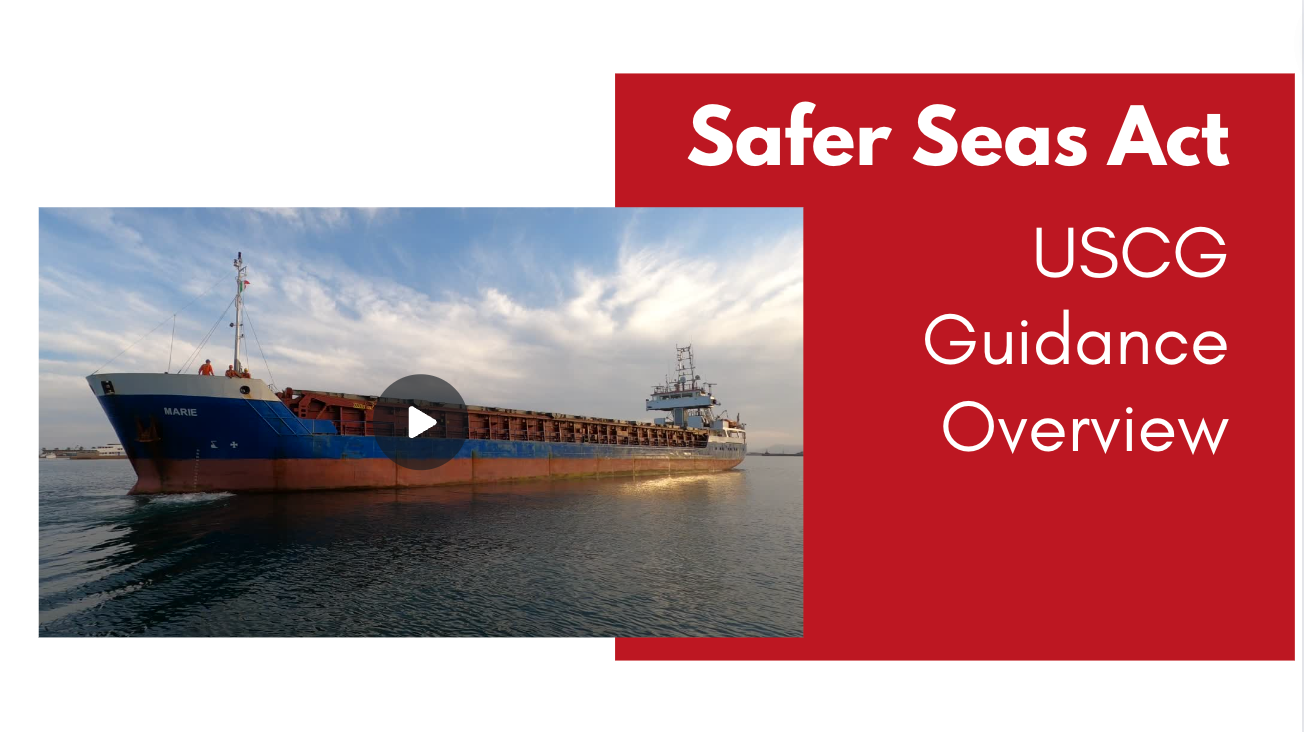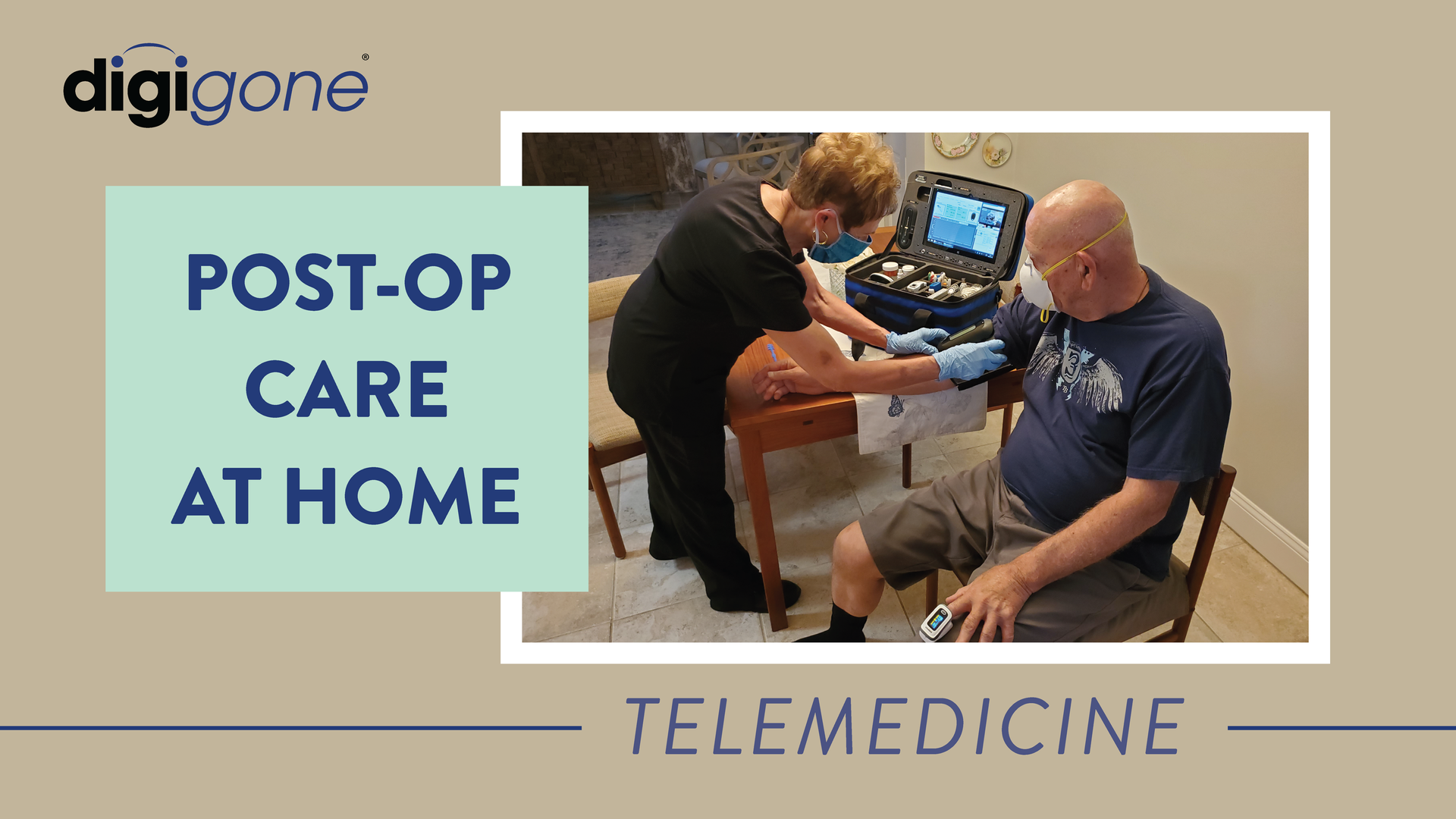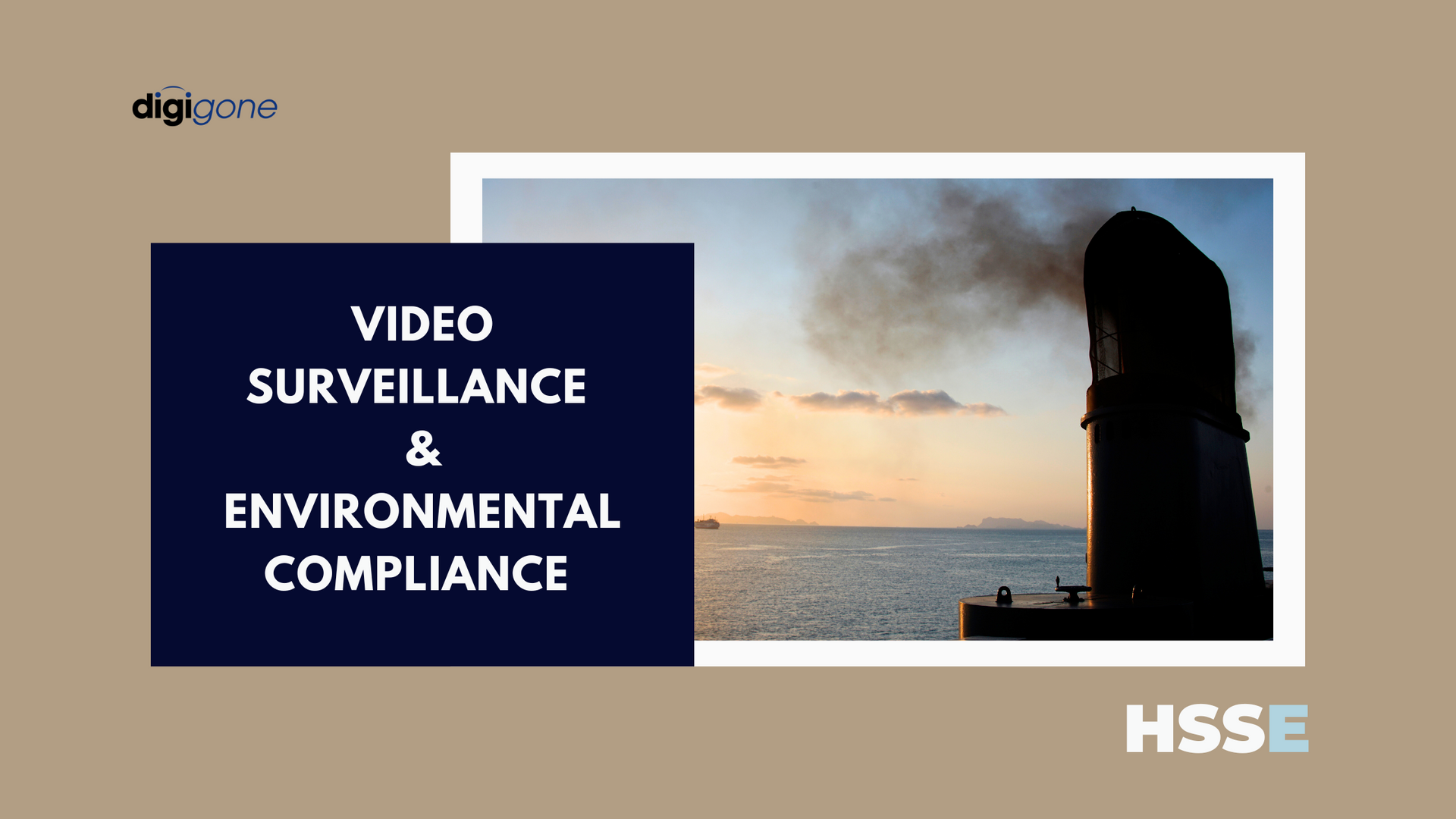Why Managed Consumption is Key to Providing Internet in the Maritime Industry
Bandwidth consumption on the high seas can get expensive, but there are ways to manage costs.
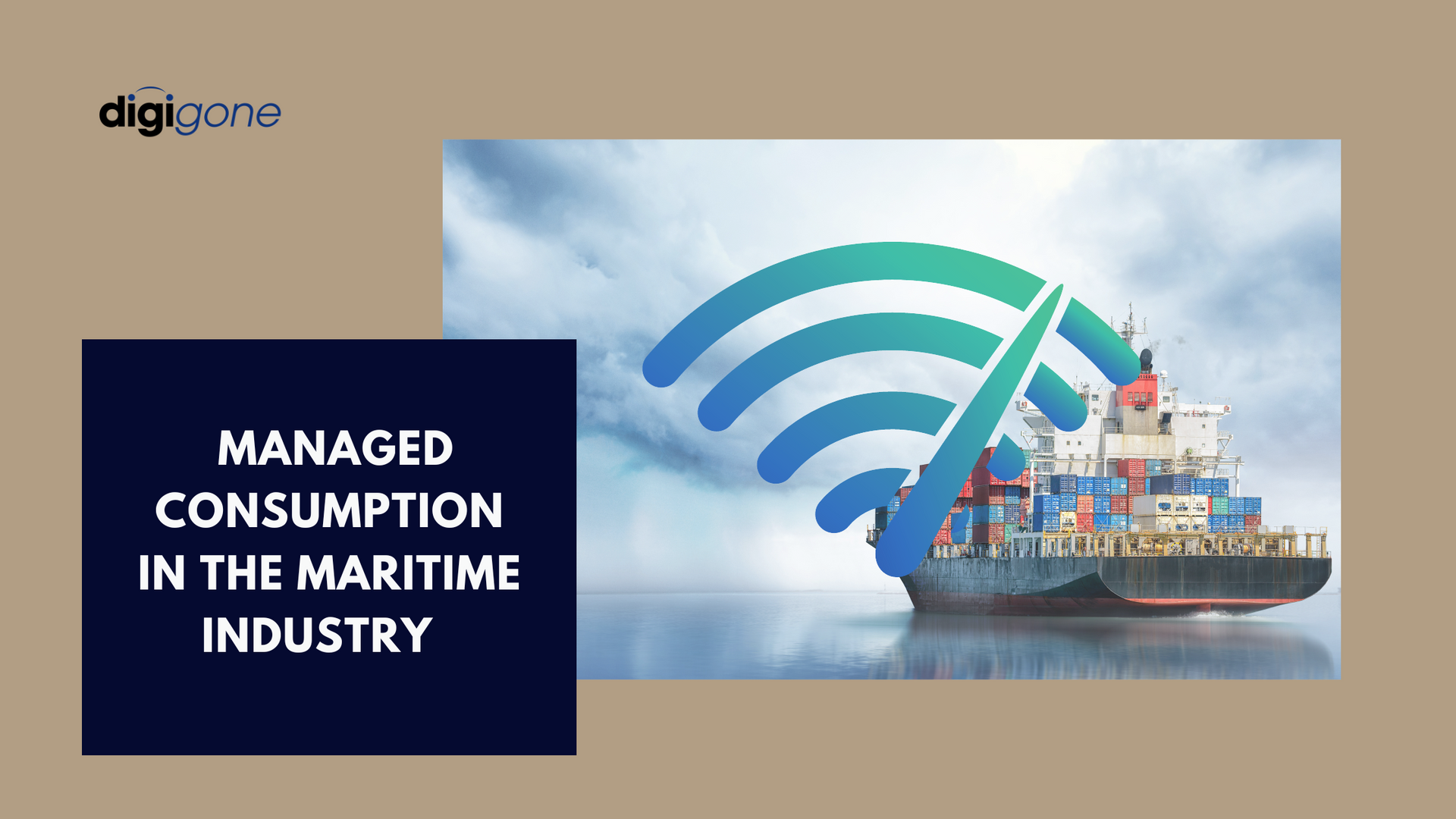
The maritime industry is one of the last frontiers of connectivity. Low-orbit satellites, like Elon Musk’s Starlink, along with a flurry of other satellite companies are exploring shallow space in an effort to bring Internet connectivity to the planet’s most remote locations. Phone calls, video chats, TikTok and who knows what else could soon become standard in an industry that has long been known for isolation.
Alas, there are still some hurdles.
Safety4Sea
reported that vessels recently outfitted with Starlink satellite have seen a “dramatic improvement in the communication environment, with up to a 50-fold increase in communication speed, enabling seafarers to make video calls with family members and watch videos, which were difficult in the past.”
Looking at Starlink’s website specifically for the
maritime industry, the upfront costs aren’t too exorbitant: equipment costs $2,500, and data plans start at $250 per month. The Mobile Priority 1TB plan has a base price of $1,000 per month, or get 5TB for $5,000 a month with “unlimited mobile data inland.”
Reading the Fine Print
Therein lies part of the problem, that last word: inland. The fine print reads “additional mobile priority data available by the GB.” That’s where the problems arise for vessels: a wide-open gusher of connectivity is unleashed onboard and is as quickly consumed. We’re hearing that some maritime customers are using 1 TB of data in seven days and have monthly airtime bills of $25,000 due to overages. These subsequent costs are substantial.
So, how can companies manage their new high-speed connectivity, and support vessel operations while still offering crew the opportunity to connect with friends and family while keeping within budget?
True Managed Bandwidth
Managing bandwidth within budget constraints is certainly possible (if not advisable). But, instead of looking at it as an all-you-can-eat buffet, consider this a la carte. Companies can successfully deploy a holistic communications system for crew that includes video calls while still managing vessel systems, including a CCTV system and telemedicine.
A lot of vessel management companies use a hybrid solution with Starlink as their primary and VSAT as their back up but, they are still having a difficult time staying within their bandwidth plan due to ‘runaway’ application consumption.
There are managed communication and monitoring applications available that significantly reduce bandwidth consumption while providing the tools to support crew welfare and vessel operation initiatives. Consider crew welfare applications, for example: WhatsApp uses 660Kbps. Zoom is 600Kbps. FaceTime is about 400Kbps and WeChat is 266Kbps. As demonstrated in the graph below, there are managed applications available that use one-seventh the amount of bandwidth.
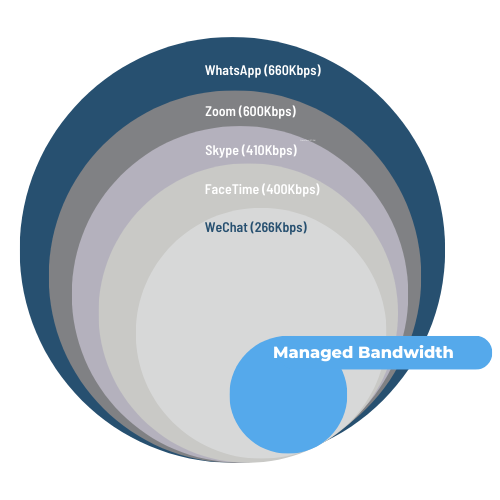
And there are other managed or bandwidth-sensitive applications that support remote monitoring, telemedicine and other technical support requirements as well. Vessel routers can be configured to direct applications requiring high-speed connections to Starlink while directing other applications to VSAT. The combination of managed applications and connectivity routing allows you to budget and allocate airtime more efficiently, supporting additional capabilities you have been wanting to employ (such as recurring training, enhanced telemedicine services, and enhanced video monitoring) to enhance vessel operations. In essence, you can do more simultaneously while using much less bandwidth, which equates to higher productivity, happier and safer crew and increased ROI.
How Managed Bandwidth Benefits Companies
1. Better Recruitment and Retention
A 2021 Seafarer Workforce Report had some bleak projections for the maritime labor force: by 2026 there’s an expected shortage of 26,000 officers. Additionally, Drewry, a global consultancy firm, reported more recently the shortfall is at a record high and will have lasting impacts on the maritime industry. Further, they wrote, “The isolation and loneliness of the industry is definitely a factor.”
Drewry advises companies to look beyond wages and to things like “good communication channels with families at home.”
2. Enhanced Crew Welfare
Having reliable internet access for crews to connect back home is essential. After the pandemic, Marissa Barker, Ph.D., with the University of Washington completed a survey and analysis of seafarer happiness. She found that 45% of mariners reported depression due to lack of access or inadequate access to the internet and 38% reported feelings of depression due to a lack of a cell phone and reliable service.
3. Successfully Manage All Vessel Functions
At the end of the day, onboard systems need to work in conjunction with these communication devices. Management teams should also consider the recent Safer Seas Act and the subsequent bandwidth required for CCTV systems, and potential reporting requirements.
Please contact us for further information on enhancing and streamlining vessel operations as well as secure and efficient communication and monitoring capabilities.
DigiGone is a veteran-owned, service-disabled business based in Largo, Florida, providing custom, managed bandwidth solutions such as
digiMed,
CrewChat,
digiView, and
digiChat in the maritime, oil and gas and mining industries. For more information visit
digigone.com/telemedicine to request a demonstration. Or email us at info@digigone.com, or call at 1-727-544-2327.

